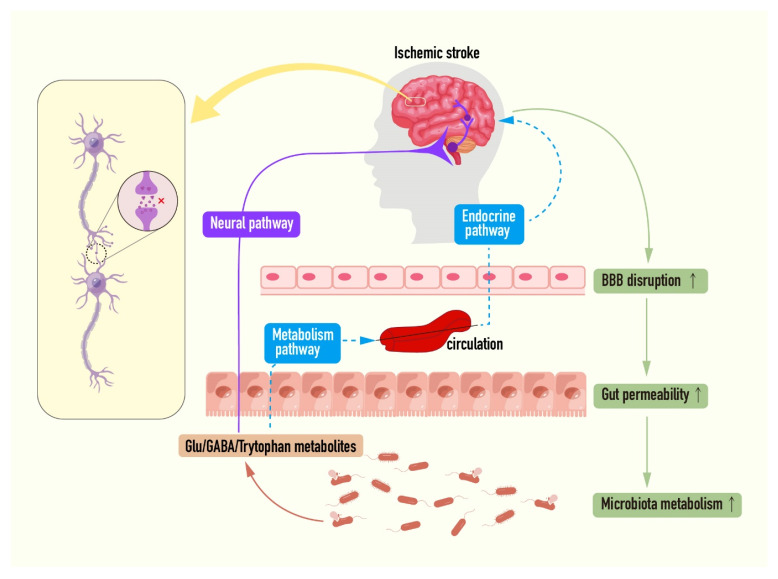Figure 4.
The interactions among the gut microbiota, ischemic stroke, and synaptic transmission. Stroke activates endogenous signal transduction through pro-inflammatory cytokine cascades to destroy intestinal flora to produce specific metabolites. While microorganisms can independently or promote the production of neuroactive molecules including glutamate, γ-aminobutyric acid, and tryptophan metabolites, then reaching the brain through the vagus nerve, spinal cord, or blood aggravate synaptic transmission disorder and brain injury. Furthermore, fecal microbiota transplantation, probiotics, and tryptophane may control the development of stroke by restoring intestinal homeostasis (the red cross indicates the synaptic transmission disorder; the vertical arrow in the rectangular frame indicates the up-regulation of corresponding pathological process).

